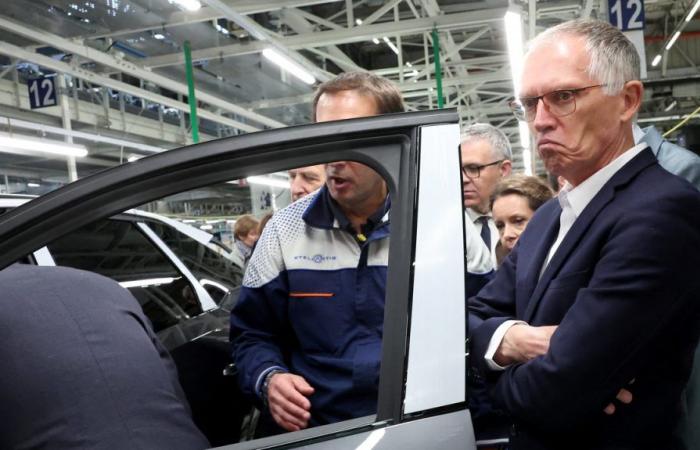Friday October 11, Carlos Tavares, CEO of the Stellantis group announced that he would hand over after the end of his mandate at the head of the global consortium, in January 2026.
This news is surprising at first glance, as the group’s board of directors had confirmed his dizzying emoluments last April, but which is half a surprise for Arnaud Aymé. “ At Stellantis, the last few months have been difficult, particularly in the North American market. And Carlos Tavares is judged as the main responsible for these difficulties by investors “, he explains.
New models that are long overdue
Indeed, at the start of the year, with three rather extraordinary previous years, Carlos Tavares once again presented impressive prospects for the year 2024, with “ double-digit growth ».
But reality has caught up with the Franco-Italian-American group. “ Almost all of their vehicle ranges were at the end of their life at the same time and the new models have not yet arrived. Under these conditions, it is normal for sales to decline. But Carlos Tavares does not seem to have anticipated this and turnover in North America is expected to decrease by 20%. », develops Arnaud Aymé.
Thus, the pace of production was maintained and Stellantis “ also finds himself with a greater supply than demand, and must make discounts “. Very far from the politics driven by Carlos Tavares, “ who was able to create significant margins for sales with exceptional rationalization of production costs ».
“Reassure investors”
Thus, this departure by 2026 for Carlos Tavares, accompanied by several changes with immediate effect at the head of the group, seems to be a disavowal of his recent policy and a means of “ reassure investors ».






